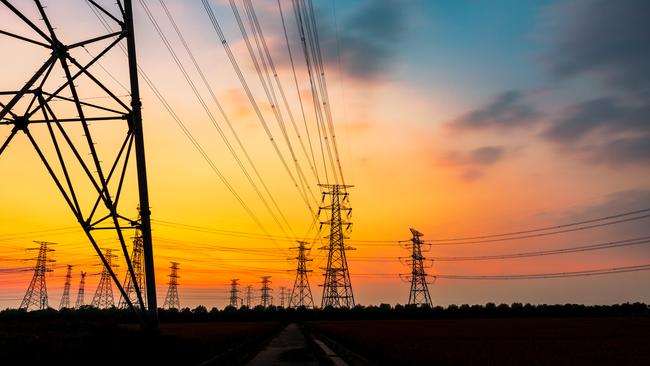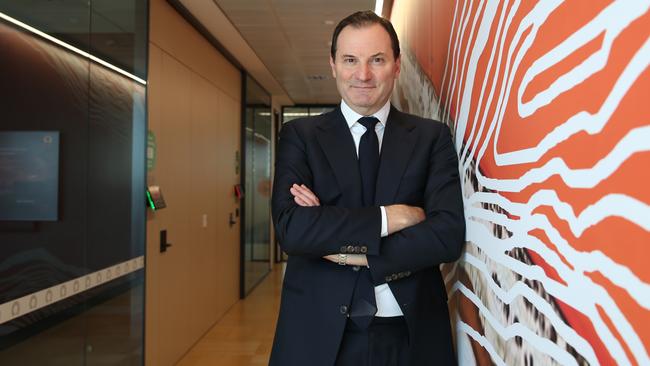We need to boost incentives for powerlines, urges Origin boss
Origin Energy says the progress of expanding the poles and wires network has been too slow and incentives must be offered to secure landowner permission.

Australia must offer greater community benefits to secure approvals to build more than 10,000km of high-voltage transmission lines needed for the country’s transition away from coal, the head of Australia’s largest energy retailer has warned.
In comments that underscore increasing alarm within Australia’s energy industry, Origin Energy chief executive Frank Calabria said progress in installing new poles and wires has been too slow and new incentives such as jobs or other royalties would need to be offered to secure landowner permission.
“The renewables won’t be built further until the transmission is. The one thing I would be focused on would be the approvals for transmission projects. That does mean working with local communities and listening to them. Benefits will need to be shared and there will also need to be a contribution that is tangible, like jobs and other aspects for those local communities,” Mr Calabria told the CEDA State of the Nation conference in Canberra.
Transmission is emerging as one the biggest challenges in Australia’s plan to reshape its electricity mix, as funding constraints and community opposition delay much needed infrastructure.
Delays in building new transmission lines would prevent cheaper electricity from being transferred across the country’s National Electricity Market, while renewable energy developers will also defer investment on new zero-emission projects until they are confident the infrastructure will be in place.
In a bid to break the deadlock, Victoria and NSW have offered landowners affected by new transmission lines $200,000 for every kilometre of their land crossed by a major infrastructure project.

Funds are paid out in annual instalments over 20 years, indexed to inflation.
Queensland has gone even further. The state government in May said it would offer landowners who agree to allow high-voltage transmission cables across their properties an average $300,000 per kilometre.
Still, progress remains slow, and authorities are increasingly alarmed.
The Australian Energy Market Operator has called for faster work on five projects worth nearly $13bn, but Australia has a long history of transmission project delays.
Australia is moving quickly to reshape its electricity grid, legislating a target for renewable energy generate more than 80 per cent of the country’s electricity by the end of decade.
While there has been a surge in new solar and onshore wind projects, Australia is lagging behind the pace needed to meet its target, and industry executives are particularly concerned about the lack of so-called dispatchable power.
During periods when the sun is not shining or the wind is not blowing, large-scale storage such as batteries or pumped hydro, or gas will be needed to deliver electricity.
But the role of gas in Australia’s transition away from fossil fuels is highly contentious. Climate advocates have called for a ban on new developments, and the recent federal government move to cap prices led to many projects being temporarily shelved.
Mr Calabria said Australia had to have an honest conversation about the vital role that gas will play in weaning the country’s electricity grid of coal.
“We must be honest with the community that we simply cannot ensure reliable power supply without building new gas peakers,” Mr Calabria said.
Gas in Australia is typically used as a so-called peaker, with plants fired up when demand is strong in the evening and on cold mornings. But during periods of intense demand, when Australia’s ageing coal-fired power stations suffer outages, or even during so-called renewable energy droughts, gas-fired power stations will run nearly round the clock.
But few new gas power stations are being built as developers struggle to obtain supply agreements, stoking concern within Australia’s energy industry about what will supplement renewables, which are expected to account for more than 80 per cent of the grid by the end of the decade.
Mr Calabria said Australia risked running out of gas before demand naturally wanes.


To join the conversation, please log in. Don't have an account? Register
Join the conversation, you are commenting as Logout